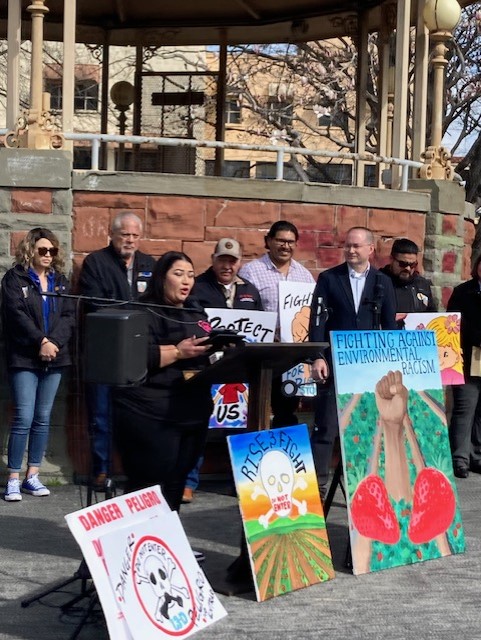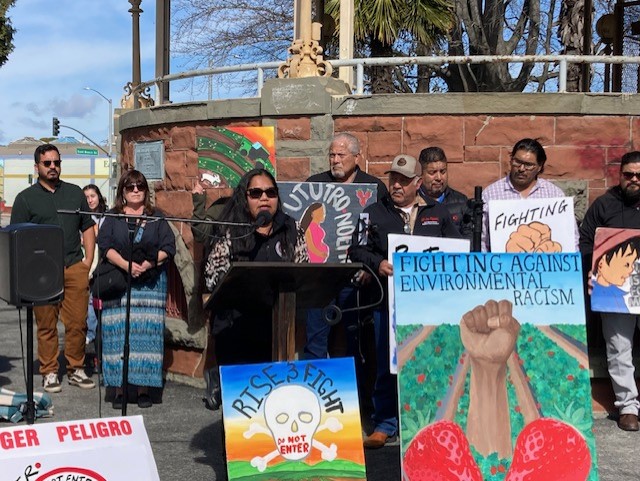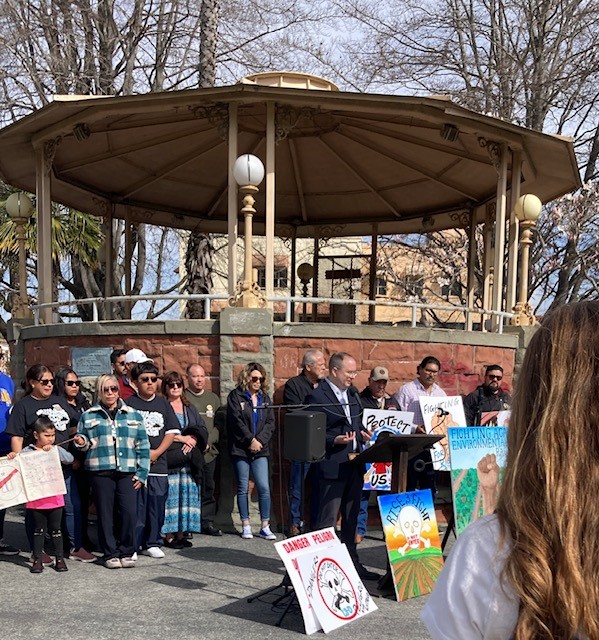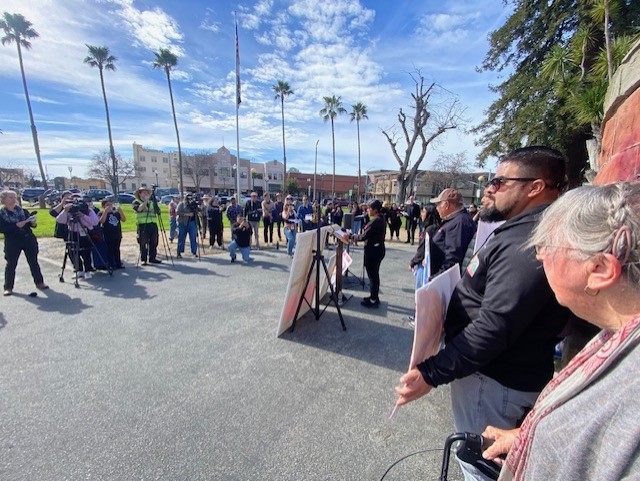



IRVINE, Calif. (Feb. 21, 2024) — The Center for Land, Environment & Natural Resources (CLEANR) at the University of California, Irvine School of Law (UCI Law) released the results of a one-year investigation into California pesticide regulatory practices at a press conference in Watsonville, California. Released on February 15, 2024, the advisory opinion by the People’s Tribunal on Pesticide Use and Civil Rights in California outlines severe, pervasive, and ongoing civil rights violations by the California Department of Pesticide Regulation and six of the state’s county agricultural commissioners.
Gregg Macey, director of CLEANR, co-authored the advisory opinion with Robert Chacanaca of the Monterey Bay Central Labor Council (retired); Caroline Farrell of the Golden Gate University Environmental Law and Justice Clinic; and Ann López of the Center for Farmworker Families.
Read the full report: bit.ly/3OKDpGM.
More than 50 people — including farmworkers and their allies, nurses, union leaders, local students and teachers — gathered in Watsonville Plaza on Thursday, Feb. 15, 2024, as part of the release of the report.
The Watsonville news conference was emceed by Greenfield City Council member and Safe Ag Safe Schools organizer Yanely Martinez and featured speakers who commented on the advisory opinion and offered examples of racially discriminatory actions by pesticide regulators. Speakers included report co-authors Farrell, López and Macey, as well as Jane Sellen of Californians for Pesticide Reform (CPR), Teresa Gomez of the Ventura County Coalition Advocating for Pesticide Safety (CAPS 805), and three Watsonville High School students, Jessica Gonzalez, Rocio Ortiz, and Anna Rivera.
At the news conference, Macey summarized the main charges in the advisory opinion, based on dozens of interviews with farmworkers and experts in pesticide use, monitoring, and regulation, as well as hours of testimony provided in Spanish and English at the People’s Tribunal.
Farmworkers from several regions in California reported a set of daily practices that substantially impair state programs that are designed to regulate pesticide use and protect workers and the public. Specifically, the California Department of Pesticide Regulation and six county agricultural commissioners:
- Do not receive the vast majority of reports or complaints that they would otherwise receive from the Latino/a and transnational Indigenous communities they serve;
- Miss multiple opportunities to find that health hazards appear generally throughout those communities, triggering a field inspection and potentially canceling permits or specifying that no additional permits be issued;
- Do not ensure that warnings, trainings, and other essential protections for Latino/a and transnational Indigenous farmworkers are equally available;
- Do not give adequate attention to local conditions including the effects that pesticides will have on Latino/a and transnational Indigenous communities when granting permit approvals; and
- Fail to reevaluate pesticides and whether pesticide use practices must change when it has reason to believe that they may cause unreasonable adverse effects to people or environment.
The news conference was organized by CLEANR, along with Californians for Pesticide Reform and Safe Ag Safe Schools.
► Media Coverage
• Inside Climate News: California Pesticide Regulators’ Lax Oversight Violates Civil Rights Laws, Coalition Charges
• YouTube: “Farmworker Communities in CA Call Out Civil Rights Violations in Pesticide Policies and Practices”
• KPFA Flashpoints: “The Troubling Results of an Investigation into Pesticide Regulation”
• Californians for Pesticide Reform: “Shocking but not surprising: Advisory Opinion just released reveals that pesticide use violates civil rights in California”
• Lookout Santa Cruz: “Coalition plans federal lawsuit over pesticide exposure across California – including in Santa Cruz County”
• The Pajaronian: “Widespread pesticide use a civil rights violation, tribunal says”
• KION 46 News: “Farmworker activists continue to protest the use of pesticides, claiming these chemicals lead to cancer and other illnesses”
For more information, please contact:
Dr. Gregg Macey
Director, Center for Land, Environment & Natural Resources
gmacey@uci.edu
